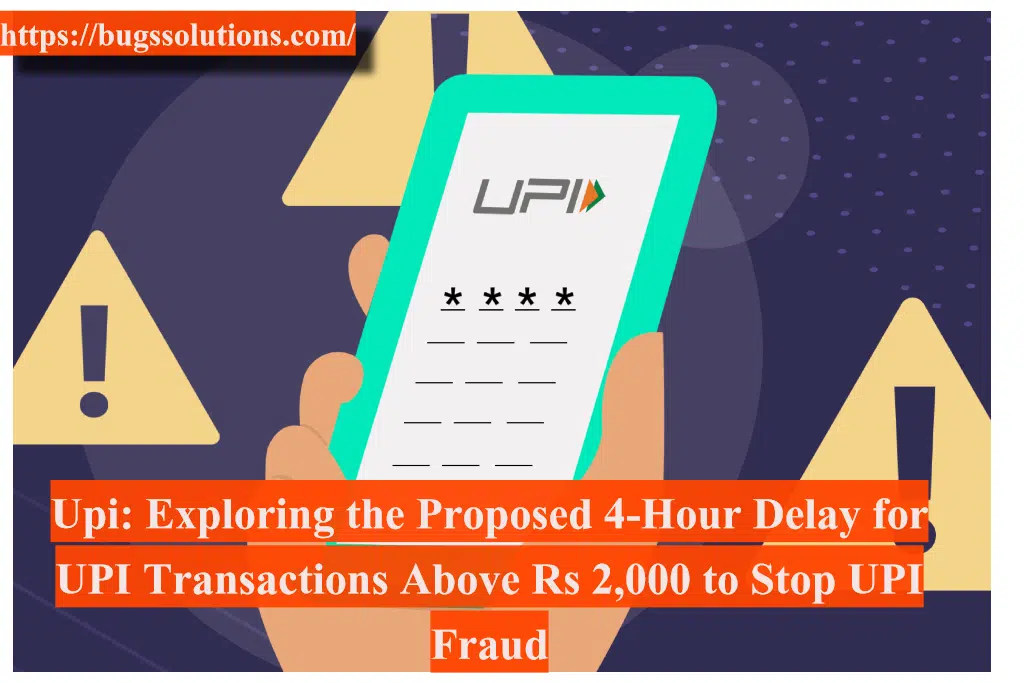The Indian government is reportedly taking steps to address fraud in online transactions by introducing a new process that may impact users of the Unified Payments Interface (UPI). According to recent reports, the government plans to implement a minimum time frame for the first transaction between two individuals, resulting in a potential four-hour delay for transactions exceeding Rs 2,000.
If this measure is implemented, users initiating the first payment over Rs 2,000 to another user with whom they have never transacted before will experience a four-hour time limit. It is important to note that this new rule could apply to various digital payment methods, including Immediate Payment Service (IMPS), Real Time Gross Settlement (RTGS), and the Unified Payments Interface (UPI).
The objective of this proposed measure is not only to slow down or restrict the first transaction when opening an account, as some digital payment systems already have similar practices in place. The main idea is to closely monitor and manage every first transaction between two users, regardless of their past transaction history.
Currently, when creating a new UPI account, users can send a maximum of Rs 5,000 within the first 24 hours. Similarly, for National Electronic Funds Transfer (NEFT), after adding a beneficiary, users can transfer up to Rs 50,000 (either in full or parts) within the initial 24 hours.
A senior government official, speaking on condition of anonymity, revealed that discussions regarding the proposed time limit of four hours for first-time digital transactions over Rs 2,000 will take place during a meeting on November 28. This meeting will involve government and industry stakeholders, including the Reserve Bank of India, various public and private sector banks, and tech companies like Google and Razorpay.
The meeting aims to address concerns related to digital payment fraud, financial crimes, and the necessary cybersecurity measures required to counter these activities. By introducing a four-hour delay for transactions above Rs 2,000, the government hopes to enhance security and prevent fraudulent transactions from taking place.
While this new measure may inconvenience some users due to the delay, it is crucial to understand the importance of combating fraud in online transactions. Fraudulent activities can result in financial losses for individuals and undermine trust in digital payment systems.
By implementing a minimum time frame for the first transaction between two individuals, the government aims to create an additional layer of security that will help identify and prevent potential fraudulent transactions. This measure will allow for a thorough examination of the first transaction, ensuring that it aligns with the user’s transaction history and reduces the risk of unauthorized transactions.
It is important for users to stay informed about these developments and exercise caution while making digital transactions. Following best practices, such as verifying the recipient’s details and using secure payment platforms, can help mitigate the risk of falling victim to fraudulent activities.
As the Indian government continues its efforts to combat fraud in online transactions, it is essential for users to adapt to these changes and prioritize security in their digital transactions. While the proposed four-hour delay for transactions above Rs 2,000 may cause temporary inconvenience, it is a step towards creating a safer and more secure digital payment ecosystem.










